RNC Moves To Limit Presidential Primary Debates
The RNC wants to limit primary debates, but it's not clear that's a good idea.
At its meeting in Memphis yesterday, the Republican National Committee moved forward with a plan to exert greater control over a Presidential primary debate process that most people seem to agree has gotten wildly out of control:
MEMPHIS — The Republican National Committee moved Friday to seize control of the presidential primary debates in 2016, another step in a coordinated effort by the party establishment to reshape the nominating process.
Committee members overwhelmingly passed a measure that would penalize any presidential candidate who participated in a debate not sanctioned by the national party, by limiting their participation in subsequent committee-sanctioned forums.
The move represents the party’s effort to reduce the number of debates and assert control over how they are staged.
In making the case for adopting the new rule, party officials repeatedly criticized the moderators and format of the 2012 primary debates, appealing to the suspicions that many Republican activists have about the mainstream news media. “The liberal media doesn’t deserve to be in the driver’s seat,” said the committee’s chairman, Reince Priebus, addressing committee members here at their spring meeting.
Such rhetoric makes taking over the debates easier to sell to the committee’s more conservative members. But what party leaders are principally concerned about is reducing the number of debates to avoid a repeat of the 2012 campaign when a series of insurgent candidates used the forums — 20 in all — to draw attention to their candidacies. Some party leaders say they believe that the number of debates pushed Mitt Romney to the right in a way that contributed to his loss to President Obama.
Party leaders want to tighten their grip on a presidential primary season they believe has grown unruly and too long. This year, the party moved to set the nominating calendar by scheduling the first four contests — Iowa, New Hampshire, South Carolina and Nevada — for February, allowing other states to begin voting in March and holding winner-take-all primaries starting March 15.
Party officials are also moving to find a city that can accommodate a convention in late June, earlier than usual to give the party’s nominee a head start on raising money for the general election.
There are plenty of good reasons to reform the Presidential primary debates, and the 2012 process among the Republican candidates for President is a very good example of what went wrong. The number of debates, for example, was decidedly ridiculous. By the time voting actually started in January 2012, there had been 20 separate multi-candidate debates and an additional number of non-debate forums that featured at least some, if not all, of the announced candidates. This was a process that had started back in May 2011 with a debate featuring, basically, the candidates that nobody really thought had a chance at winning the nomination, but soon the number and frequency of debates was reaching ridiculous proportions. At one point in September, there were three debates within less than a three week period, all sponsored by different organizations. In addition to the frequency, though, the other problem with the 2012 primary debates, for the most part, was their utter lack of substance. In no small part, this was due to the fact that there was simply so many people on the stage, at one point as many as nine candidates in a single debate. Even in a 90 minute debate that means that the time granted to each candidate to respond to questions was exceedingly small and there was typically almost no interaction between candidates during the course of the debate themselves. Notwithstanding this precious time, the questions asked of the candidates were often silly and meaningless, such as the infamous “Coke v. Pepsi” moment at one CNN debate, or the time Herman Cain was asked about his favorite kind of pizza. The lack of time was made worse by the fact that far too much time was spent on the candidates who happened to be leading in the latest polls, leaving candidates like Jon Huntsman and Gary Johnson lingering on the fringes of the stage waiting for a chance to speak. To the extent the debates generated any news at all, it typically was the result of a verbal gaffe, misstatement, or mistake on the part of a candidate rather than anything substantive. Given all of that, it makes sense that the RNC would want to exercise some kind of control over the process, just as they are rightly taking back control of a primary calender that had gotten out of control.
The one problem I see with this proposal, is that it seems to signal some belief among mainstream Republicans that the best way to limit their problems in Presidential elections is to limit the ability of voters to see those candidates on stage. To no small degree, this belief is rooted in a general Republican distrust for the so-called “mainstream media,” and the belief that the moderators from networks such as CNN and ABC were obviously engaged in an effort to “trap” the candidates. As absurd as this idea is, it is part and parcel of a hatred toward any media institution other than Fox News Channel that has taken root in the Republican Party since at least the 2008 election if not sooner, an idea that is constantly reinforced by the Sarah Palin’s of the world and their references to the “lamestream media.” Apparently, the GOP believes that restricting the ability of the press to ask their candidates tough questions is going to help them in the General Election. The absurdity of this notion should be evident on its face, but it has become gospel in the GOP to the point where the RNC is apparently now using it as an excuse to prevent John King or Wolf Blitzer or Chuck Todd from asking their candidates questions. That’s not outreach, that is living inside of a self-fulfilling media bubble, and it isn’t going to help the GOP electorally in 2016 or beyond.
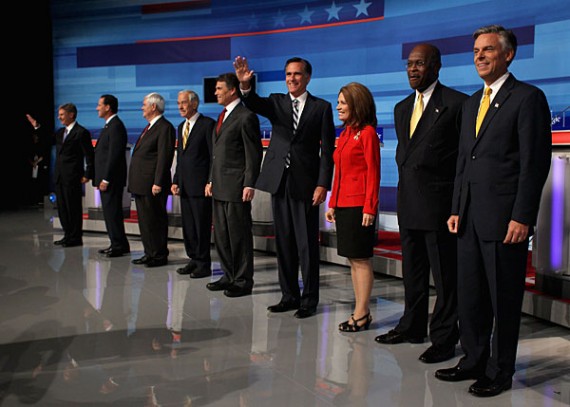

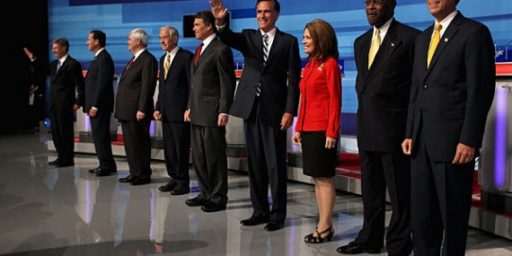
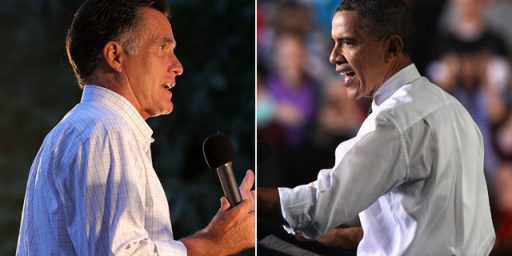
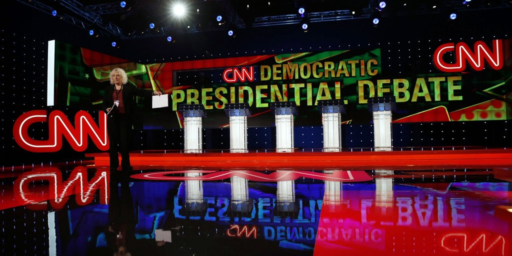
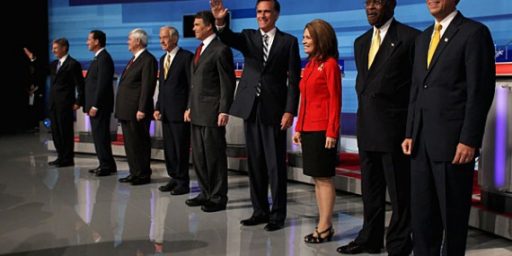
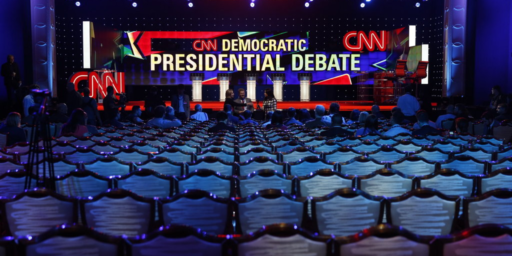
If they’re planning to not allow insurgent candidates at the official debates anyways, why would they care about the sanctions on appearing at non-official debates?
Had the GOP had Rick Perry shortened the primary season in 2012, they could have ended up with Rick Santorum, Newt Gingrich, Herman Cain, Michelle Bachman, or Rick Perry (most likely) as their nominee. Fortunately, the debates weeded out the clowns, and gave the GOP their best shot at winning with Romney.
Obama might have won 44 states had Perry won the nomination. His gaffes wouldn’t have happened during the primaries, they would have happened during the presidential debates. If they’re not careful, they’ll end up with Senator Cruz or Rand Paul, and Hillary wins 40 states against either of them.
Which politician can resist the unpaid media? It’s the tragedy of the commons played out under the debating lights.
I quit watching these so-called “debates” years ago when they started excluding third party and independent candidates. It was then apparent to anyone that the news media and networks were controlling these debates. So what we now have is rehearsed, scripted, programmed “infomercials” designed to have specific outcomes, among other things brainwashing and controlling people’s opinions and thoughts. What is revealing is the way the questioning, even the camera angles and candidate placings are all laid carefully out while a “moderator” pretends to be fair and impartial. A show worthy of a C.B. DeMille movie.
The RNC may be onto something here. The only sure way to get people to vote for Republicans is to make sure no one knows what they stand for.
Translation: Having put on the road show of Animal Crackers (without the fun parts) in 2012, and having the utter vacuity of our candidates thoroughly displayed on the TV screens of America, it is in our best interests to do our goddamnedest to prevent any repeat performances.
@Tyrell:
In what sense did the news media and networks bring about Perry’s aphasia, Bachmann’s whatever the hell that was, and Romney’s transmogrification into this guy?.
Seriously.
@sam: I did not watch those “debates”. I gave up on them when they did not include Nader.
That’s a feature, not a bug, Doug. In fact, I would argue these reforms do not go near far enough. If they ended them all together that would severely limit the ability of GOP candidates to say stupid things on national TV. Now if they could only do something about those ads….
@Tyrell: Why on Dog’s green earth would that bother you?
Who cares? There is not one Republican who stands a chance of being president. The only thing the Republican primaries will do is give wonks and pundits something to write/talk about since it looks like the Democratic Primary season for 2016 is already over.
Maybe by 2020 the networks and wonks will just admit that the Republicans are irrelevant and ignore whatever they do to nominate a totally irrelevant candidate.
@Tyrell:
Why would they include Nader in the Republican primary debates?
@Grewgills: I think Tyrell literally doesn’t know what he’s talking about, having confused general election debates w/ Republican primary debates.
They could limit how many candidates can appear at one specific debate. That way, you could have as many debates as last season but each one would only have four or five candidates on stage.
The best part is, you could have candidates sniping at each other from one debate to the next without necessarily appearing face-to-face which could set up a pro-wrestling kind of confrontation at an inevitable later debate, all while giving insurgent candidates a chance to air their message and gain appeal.
I mean, the only people who watch all the debates are junkies anyway, it’s not like viewership is a truly huge concern.
One is not like the others.